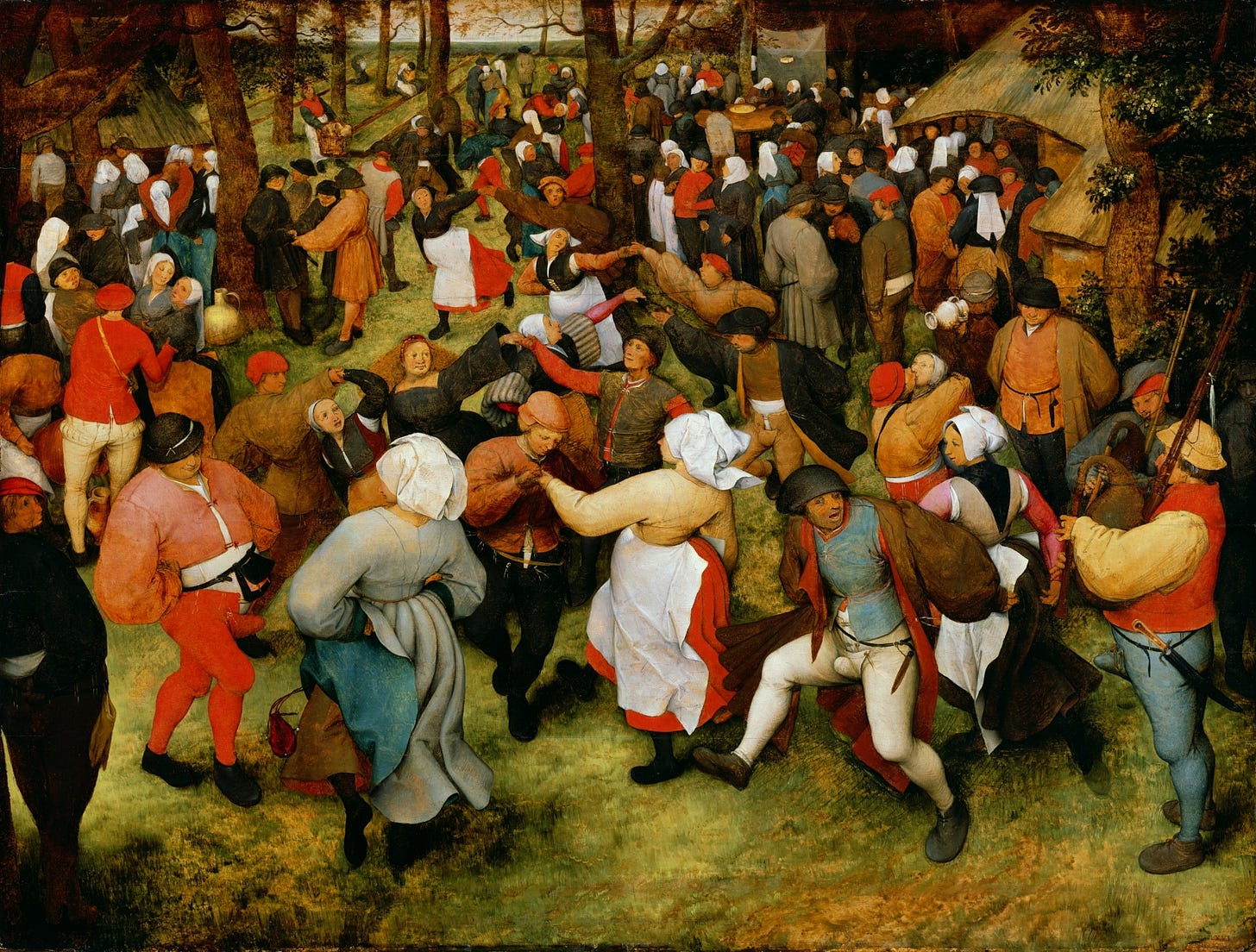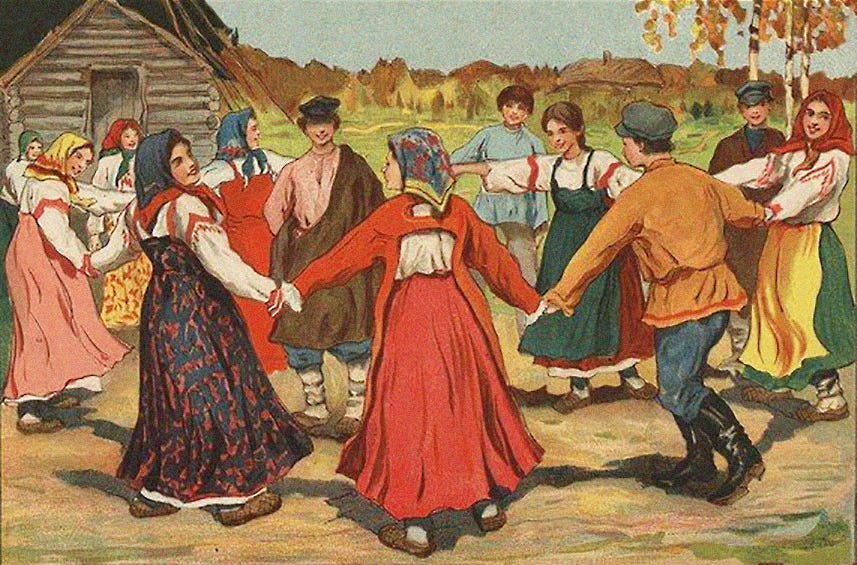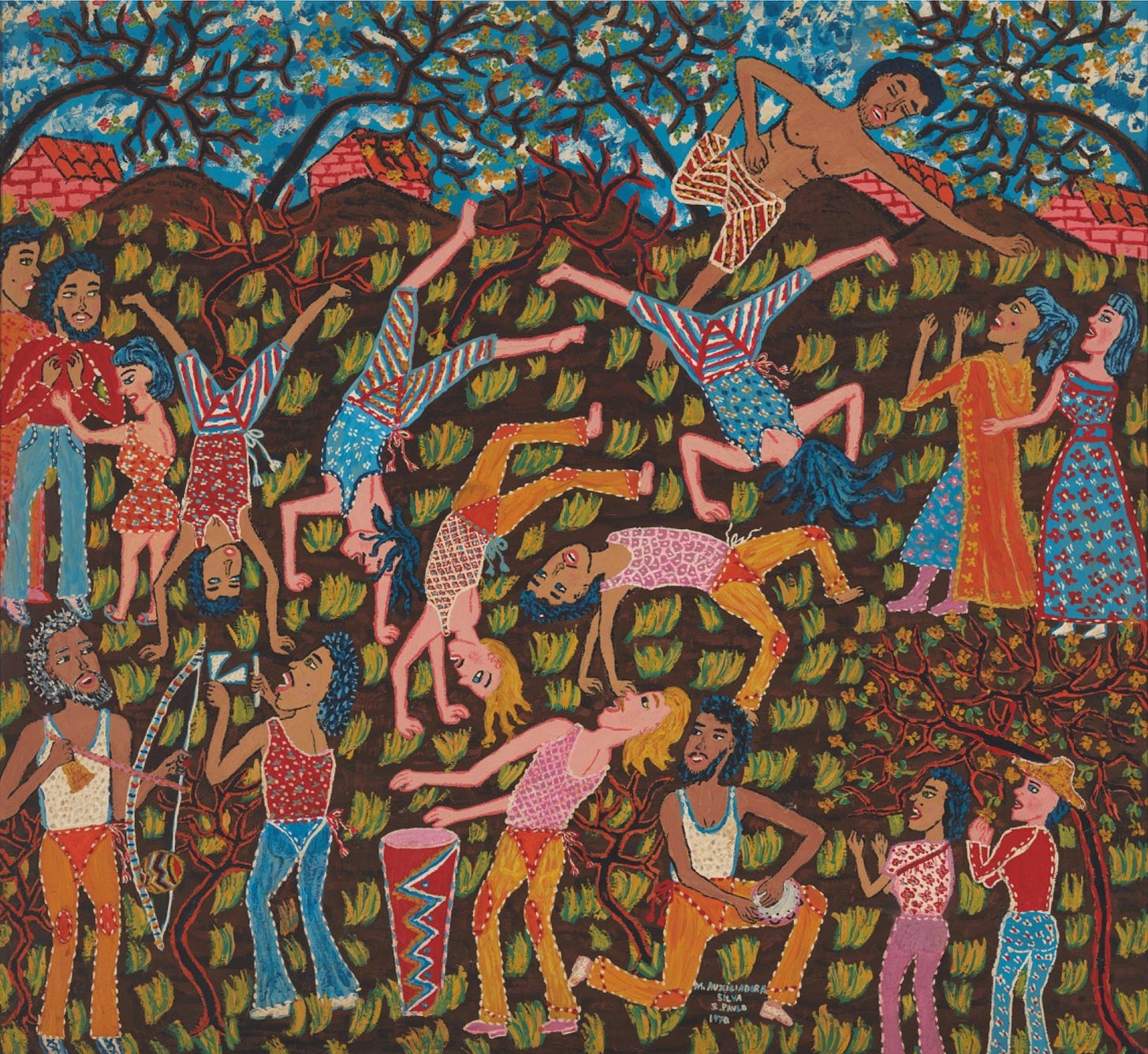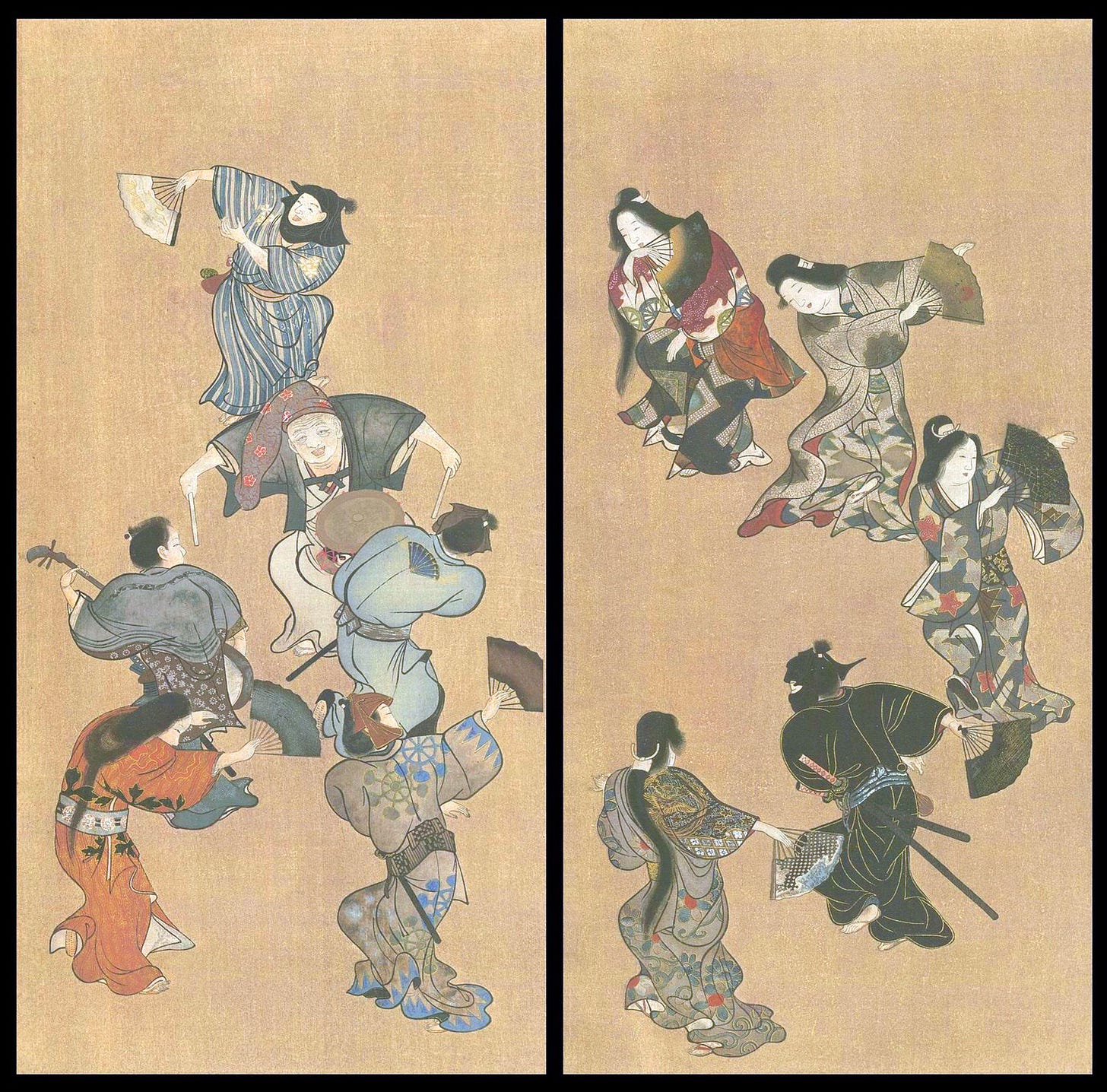Facing Zion
On Proximity, Listening, and Humility
On the second of October 1856, Mary Murdoch lay dying on the plains of Nebraska. Known to her family as “Wee Granny,” because she was just four feet seven inches tall and ninety pounds, Mary joined The Church of Jesus Christ of Latter-day Saints in Scotland. Like many Saints at the time, she decided to travel west to join her son who had arrived in the Salt Lake Valley the year before. Unfortunately, the hoped-for reunion was not to be. The arduous journey took its toll, and Mary died near Chimney Rock, where her descendants later placed a memorial for her that included these final words, “I died with my face toward Zion.”
Though Mary Murdoch wanted to be with her family in a physical place called Zion, she almost certainly thought of Zion as something more. For Zion is not just a location on a map, but a way of relating to each other and to God: “And the Lord called his people Zion, because they were of one heart and one mind, and dwelt in righteousness; and there was no poor among them.”(Moses 7:18) Mary’s last words expressed a longing for both that place where she could be reunited with family and for membership in a “beloved community.” Who among us does not aspire, as Mary did, to live always with our “face toward Zion,” especially as we observe the turmoil, polarization, and contention in our present-day communities? In an age of rampant political conflict, continuing racial tensions, and a social media culture driven by algorithms designed to close our minds, where does one find community? More importantly, how can we build a community worthy of the name Zion? We, too, look toward Zion and yearn for a time when we as a people can “have our hearts be knit together in unity and in love towards one another.”(Mosiah 18:21) We suggest three guiding principles or practices from our field of psychology that can lead us toward Zion: proximity, empathic listening, and humility. As we focus our minds and hearts on the people of Zion, Zion becomes a way of being.
Proximity
To create a community of one heart and one mind, we must first be willing to meet, greet, know, and exchange ideas with members of that community—including, and perhaps especially, those who think differently from us. We need to get close to one another. This does not happen by accident. The specialization of tailored, narrowed media outlets, social media preference algorithms, and other social conventions intended to separate us, all combine to emphasize the similarities of those in our group while ossifying our perception of difference from those outside. Only when we intentionally meet those with different experiences and views will we be able to find the commonalities that matter, appreciate the differences that make us unique, and learn to love each other as a unified people. In this way we expand the borders of Zion.
Being of one heart and one mind does not mean accepting only those people who share the same set of interests, beliefs, and cultural practices. Rather, becoming one involves uniting in shared purposes regardless of difference, and this can only happen when one is proximate with others. Becoming more proximate might look like joining your neighbor to serve together, closing Twitter at family dinner to engage in real conversation, or looking for common values rather than an argument when your friend shares an idea that conflicts with what you believe. Such actions can establish that shared vision and trust so essential to Zion.
Consider the proximity inherent in missionary service. Sisters and elders alike are assigned to areas and even countries and cultures with which they have very little experience or knowledge. Yet when they arrive in their new home of eighteen or twenty-four months, they immerse themselves in the culture, learn the language, and serve with faith. Missionaries choose to know the people in their communities in loving and enduring ways. They express this proximate love by maintaining relationships beyond transfers or mission terms, celebrating holidays, and incorporating varied cultural traditions into their own lives back at home. This extended cultural immersion may not be as realistic in our everyday lives and communities, but we can replicate this commitment to connection by choosing to spend time and foster friendship with those outside of our default circles. Doing so is an active way to create Zion in our lives and communities.
As we approach unity, we may begin to see our differences as strengths. Two partners in a loving marriage likely have widely varying preferences, interpersonal styles, and family backgrounds, yet choose to use those differences to create a loving family environment. Does happiness in marriage come without conflict? Ask any healthy couple, and they will assure you that conflict regularly shows up in the marital dynamic. Difference in viewpoint or opinion doesn’t have to mean contention. Rather, conflict gives us all a training ground to practice covenant relationship and Christlike love with one another. Unity can be achieved by honoring diversity. Indeed, some would say that unity requires both diversity and healthy conflict!
The study of propinquity within psychology has revealed that one profound effect of proximity is that we come to love those whom we know well. Bryan Stevenson, founder of the Equal Justice Initiative, writes that we need to be “willing to get closer to people who are suffering,” explaining further that it is this proximity to others and the love it engenders that has the “power to change the world.” One of the central purposes of Jesus’ ministry was to seek proximity to the suffering, attracting and pursuing everyone from a disgraced Samaritan woman to Nicodemus, a ranked member of the Sanhedrin, even extending that proximity to Gentiles. When we choose proximity, we see each other, we hear each other, and we come to love each other. When we love our suffering neighbors as Jesus loves them, we begin to live in Zion.
Empathic Listening
Interacting with our neighbors is the beginning of a beloved community, but not the end. It is entirely possible to interact with others and never really hear or understand their views. The well-known business consultant Stephen Covey noted that “most people do not listen with the intent to understand; they listen with the intent to reply.” We need to listen, and even more, choose to listen with genuine and accurate empathy. William Miller, a noted innovator of listening techniques within the field of psychology, describes accurate empathy as a “learnable skill” that allows us to deeply connect with others by understanding their experiences. When empathy leads our conversations, we open ourselves and our relationships to better connection, better understanding, and better shared purpose. What would this kind of empathic listening look like in today’s society? How can we listen with a sense of curiosity and collaboration? Empathic listening is “more than just being patient until it is our turn to speak; rather, [it is] a listening that includes real response, not simply nodding absorption.”1
Empathic listening includes asking genuine questions, what the author and psychologist Edgar Schein would call “humble inquiry,” followed by employing two key skills: attentive listening and reflective understanding. Attentive listening is the ability to focus on the speaker without succumbing to internal or external distractions. Reflective understanding is communicating back to the speaker what you heard so that you can both engage in the search for shared understanding as collaborators, rather than opponents. These types of listening, attentive and reflective, prompt us to accept our conversation partners as they are. We seek only to understand and understand well, without judging or disrespecting their autonomy and agency. After all, our interlocutors are specialists in their own values, beliefs, and judgments. When finally we speak after listening in this manner, we will speak heart to heart, and not simply word for word.
As a clinician and clinician-in-training, we understand the necessity and importance of close listening. Before clients dive into the work of therapy, they first need to feel seen, heard, and understood; otherwise, all the proven methods and interventions that promote emotional and mental healing lose their potency. Psychotherapy research indicates that the “therapeutic alliance,” that bond between therapist and client, is the most important factor to change. The active and empathic listening required of a therapist is a powerful and important mechanism for establishing a relationship that leads to healing.
When we employ careful listening in our relationships to establish a foundation of understanding and trust, we follow Jesus’ admonition to give and receive, to understand and rejoice.(D&C 50:22) In so doing, we do more than simply understand one another, we become edified together as children of the same God. With our ears tuned to the same divine voice, we create Zion not so much by what we say, but by what we hear and understand.
Humility
So now we have spent some time with our neighbor, we have listened to our neighbor, we love and have learned from our neighbor. Zion feels closer day by day. What will continue to draw us forward to that heavenly community? How can we recover from the pitfalls that trap so many human relationships? Humility, mediated through our relationship with the Savior.
In Ether 12:27, our Savior tells us that as we come unto Him, He will show unto us our weaknesses, and that the purpose of this process is for us to develop humility. Our humility acknowledges that we cannot become perfect alone, but only as we draw closer to our Savior. Our humility also teaches us that we need each other to become who the Savior instructs us to be. Being one in Christ means being one with each other. Drawing closer to the Savior exposes those elements of ourselves that need to be made new through Him. Seeing our own weakness, and knowing the Savior loves us in our unfinished state, allows us to be understanding of the weakness of our neighbors. More than that, it allows us to seek the wisdom of our neighbor.
The attitude of “humble inquiry” toward our neighbor encouraged by Edgar Schein is, at its root, the belief that we can learn something from our neighbor. Such humility encourages us to be like Socrates and acknowledge that the only wisdom we have is to recognize that we are not wise. Being in such a frame of mind creates the desire to really hear and understand another, especially when another’s strongly held views are very different from our own.
Nelson Mandela exemplified this humble inquiry on the world stage when, in his travels around South Africa, he would step out of formal lines and processions to connect with those in invisible and poorly paid positions: servers, cleaners, parking attendants. Mandela’s kindness, humility, and eagerness to acknowledge the worth of everyone around him extended into everything he said and did and became a hallmark of his legacy.
As we cultivate a receptivity to others’ ideas and experiences, we start to develop what psychological researchers call “cultural humility.” Cultural humility refers to our willingness to see and acknowledge our neighbor’s differences in a non-defensive way even when it may cause discomfort. This stance requires introspection and interpersonal respect.
Cultural humility is essential for effective psychotherapy where interventions must be tailored to the unique characteristics of the client and their background. Even when two clients come from similar cultures, languages, and racial or ethnic backgrounds, the expression of their challenges and associated solutions may be differentiated by family circumstances or other individual characteristics. Psychotherapy is never a one-size-fits-all solution; what may be helpful for one would be detrimental to another. The culturally humble therapist must be willing to listen and learn from their clients to best adapt treatment in responsive and effective ways. In fact, both cultural humility and therapist responsiveness are correlated with better client outcomes. This same attitude of meekness can enhance our everyday relationships as we approach our neighbors’ differences with a willingness to learn.
We are not suggesting that the humble listener becomes one with, or even agrees with, their fellow traveler. Allowing others to disagree with us, even profoundly so, because of our deep humility, deep love for them, and our deep respect for their agency, creates the most favorable environment for us to change hearts, ours and others’. It also allows us to unite over even more important shared values. With a crafted relationship of trust, we can move in the direction of a beloved community where we find our shared connection as fellow travelers because of, not despite, our diverging experiences. Imagine how we could enrich our understanding of Jesus, of God, of our place in creation as we seek to learn through humble inquiry how others have done the same.
Our faith in Christ gives us hope that embodying these principles of proximity, empathic listening, and humility will open the way to new relationships. We believe these relationships are the stuff of Zion, and as we draw close to each other, we will learn to love each other. In these renewed relationships, we hope to listen intently with sincere care, compassion, and humility especially when encountering differing opinions and lived experience. We believe that unified purposes and shared commitments can be found in the presence of widely diverging views and backgrounds. Even when we have perpetual and unresolvable differences, we can work together toward shared understanding without demonizing or hurting one another. After all, this is how Christ wants and expects us to treat each other. (John 13:33-34) It is this type of community, where everyone belongs, listens, and humbly searches for common ideals, that Mary Murdoch hoped to join and toward which we now turn our faces. We may find, as we journey together, that Zion is achieved in the pursuit of it.
Ben Ogles is a clinical psychologist and professor in the Department of Psychology at Brigham Young University.
Esperanza Dotto is an Argentinian transplant studying Psychology at BYU.
Neal A. Maxwell, “When the Heat of the Sun Cometh,” Young Adult Fireside, May 20, 1979. Link to download












